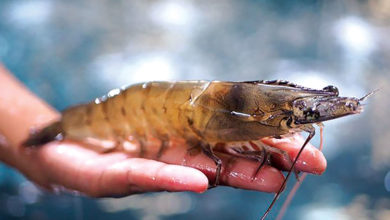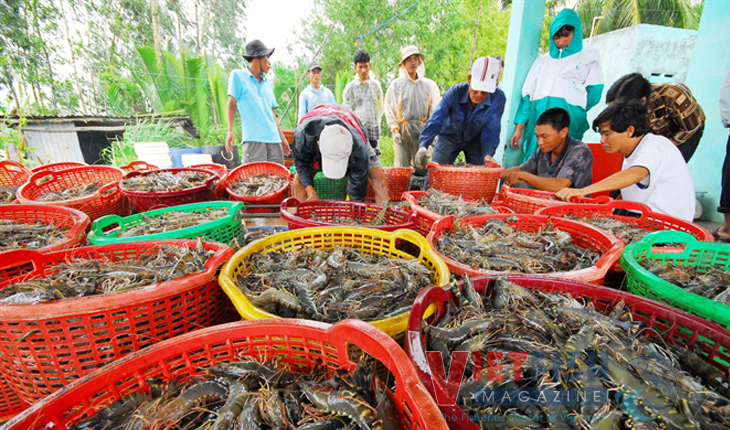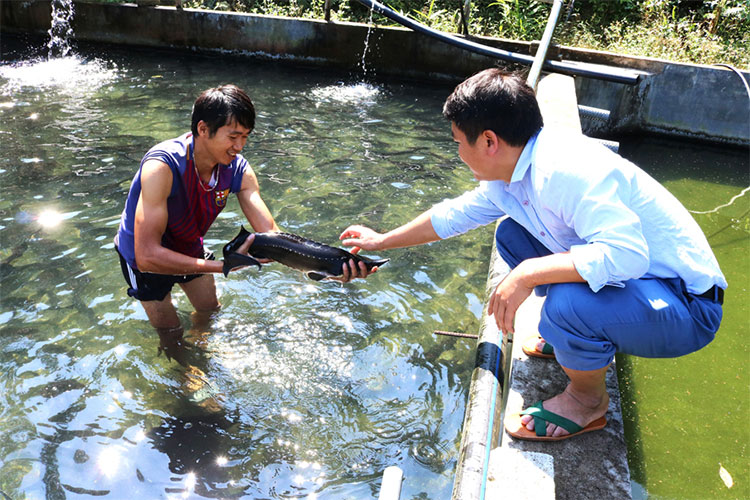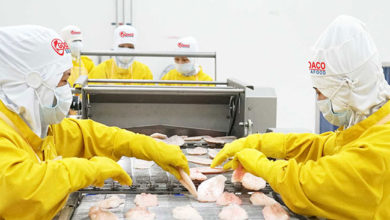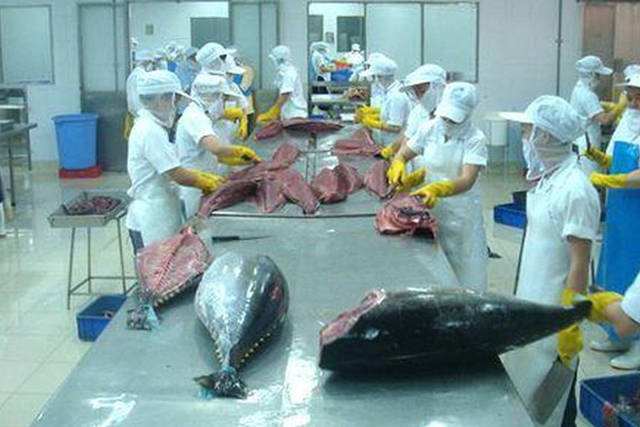Ba Ria – Vung Tau: Shrimp prices plummet by 30%, many farms suspend operations
Shrimp prices in Ba Ria – Vung Tay province have plummeted sharply, posing significant challenges for farmers. Many households have had to empty their ponds, and enterprises have halted exports. This year, local shrimp farmers are facing unprecedented difficulties.
According to the Vietnam Agriculture Newspaper, in many local cooperatives, 35 count shrimp is sold at around 122,000 VND, a 30% decrease compared to the Tet holiday period. Meanwhile, production costs are around 120,000 VND/kg.
Due to the low selling price, even though it is harvest time, many cooperatives are waiting an additional 10-15 days, hoping that prices will rise.
Recently, the Quyet Thang Agricultural Cooperative in Ba Ria city has been partially harvesting shrimp. About 10 tons of shrimp have been sold, but the current selling price is not satisfactory.
Nguyen Kim Chuyen, the cooperative’s director, mentioned that this year, the hot climate has slowed shrimp growth and led to many diseases. Despite having covered ponds and using recirculating water systems, the cooperative only dares to stock at a density of 200-250 shrimp per square meter, resulting in low productivity. At the same time, input costs have increased significantly, making production costs close to 120,000 VND/kg.
“Shrimp prices fluctuate daily, dropping every day. Tt was 127,000 VND/kg yesterday, and yet, it dropped another 5,000 VND today. And as such, we are only breaking even or incurring losses. Meanwhile, many other items need to be reinvested and operated”, said Chuyen.
Similarly, the Cho Ben Cooperative in An Ngai commune, Long Dat district (formerly Long Dien district) is also waiting an additional 10-15 days before selling, hoping shrimp prices will rise. The deeper the price drop, the more the cooperative’s bank debt weighs down.
In Loc An commune, Long Dat district, many shrimp farmers have suspended their operations for several months because they cannot afford to restock. Especially in the context of the southern region entering the rainy season, the risk of disease outbreaks is high.
Not only farmers and cooperatives are affected, but seafood export enterprises also face significant difficulties. Shrimp prices have continuously fallen while sea freight rates have surged by 40-60% since 2023. Vietnamese shrimp prices are struggling to compete with Ecuadorian and Indonesian shrimp, leading Baseafood to temporarily halt shrimp exports.
Truong Dinh Hoe, Secretary General of the Vietnam Association of Seafood Exporters and Producers (VASEP), said that not only in Ba Ria – Vung Tay but the shrimp industry nationwide is facing difficulties. Particularly since early 2024, the global economy has shown no signs of recovery, inflation remains high, and the Russia-Ukraine conflict continues without resolution, slowing shrimp consumption in many countries. For example, in the U.S., South Korea, and Japan markets, Vietnamese shrimp exports dropped significantly in the first five months of the year.
“Although compared to the same period, Vietnam’s shrimp exports to other countries have increased slightly, it is not significant. The supply-demand gap is quite large, so the current situation is understandable,” Hoe analyzed.
Another reason is that China is a major market for small-scale shrimp farmers. After Tet, the purchasing power of this market decreased significantly, leading to a gradual decline in production. Meanwhile, domestic shrimp farming remains high, causing an oversupply.
Facing such challenges, Quyet Thang Cooperative has introduced its products into supermarket systems or accepted selling to other processing units at lower prices. The cooperative has also reduced the shrimp farming period from three months to two months per cycle. The number of farming cycles per year has increased from three to five to compensate for the reduced shrimp yield due to low stocking density.
VFM


